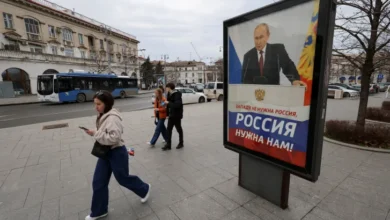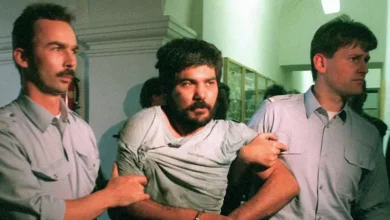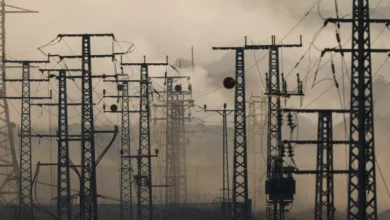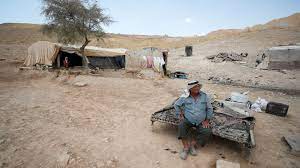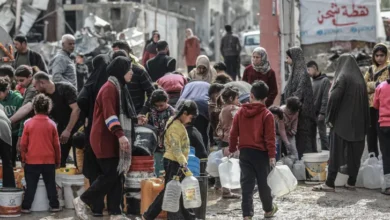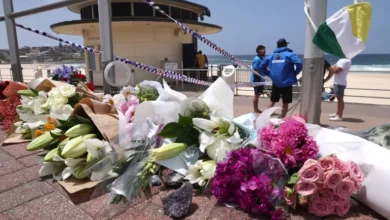From street names to textbooks, Senegal is rewriting French colonial memory
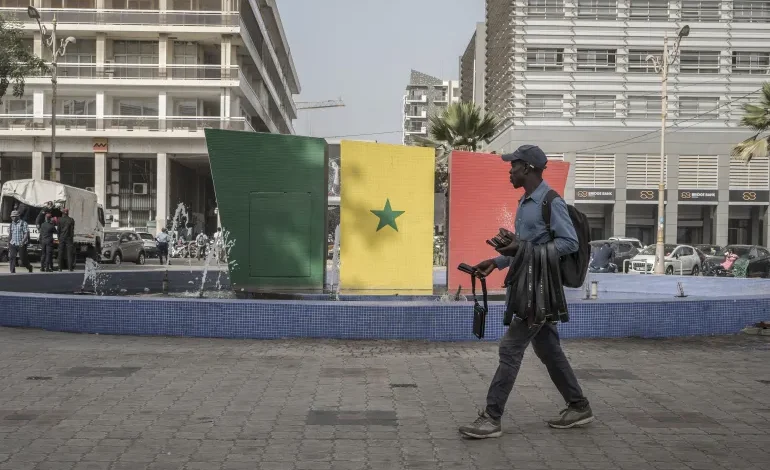
On a weekday at Dakar’s open-air Fass Market, traders call out in a rhythmic buzz as some buyers approach from a nearby major highway: Boulevard du General de Gaulle, a road named after a former French president and a man not everyone here knows.
It irks meat seller Matar Seck that street names like these – remnants of a painful colonial past – exist at all. Standing in front of his stall where he patiently waited for a customer, Seck questioned the point of having an Avenue Faidherbe, named after a brutal colonial governor, or a Rue de Jules Ferry, after a French politician who once claimed colonialism was necessary. Like many Senegalese, Seck said he wants change.“I’ve lived in Europe. I’ve been to Barcelona, Rome and Milan, but I’ve never seen white people give the names of their most prestigious historical monuments and buildings to a Senegalese,” he said. “We have no shortage of people to name our most important streets [after]. I want to see a Youssou Ndour Street for example,” Seck added, referring to the beloved Senegalese crooner.
Indeed, streets in the capital city and across Senegal were originally named by the French colonial government and honoured officials or royals of the French empire. Decades after independence, they’ve largely stayed that way, a legacy of 300 years of conquest, slavery and colonialism.
But that might soon change: President Bassirou Diomaye Faye in December announced plans for a new government agency to rename streets and public squares to honour Senegalese.
It’s a notable step for Senegal, which has historically maintained close ties with Paris. In November, Faye asked Paris to remove about 350 French soldiers stationed there, in effect ending a decades-long defence pact and continuing a trend in West Africa, where nations are downgrading once-strong ties with France.
After a fraught election campaign last year that followed weeks of protests against former President Macky Sall, Faye came to power in April, promising to strengthen Senegalese identity and shrink ties with France – even replace French as the country’s official language. Under Sall, critics saw Senegal as a puppet that put France’s needs above all. Faye promised to be different. Now, not only will the new agency rename streets, but it will also rewrite Senegal’s textbooks.
Dakar-based urban planner Rakhiat Diallo Fall told Al Jazeera those efforts are necessary to do away with the sour taste of the past – from Senegal’s role as a major slave port to its centuries of colonial rule.
“Memory also passes through toponymy,” Diallo said, referring to the study of place names. “Seeing streets named after people we don’t know, people who have mistreated us, is a disgrace.”
Indeed, streets in the capital city and across Senegal were originally named by the French colonial government and honoured officials or royals of the French empire. Decades after independence, they’ve largely stayed that way, a legacy of 300 years of conquest, slavery and colonialism.
But that might soon change: President Bassirou Diomaye Faye in December announced plans for a new government agency to rename streets and public squares to honour Senegalese.
It’s a notable step for Senegal, which has historically maintained close ties with Paris. In November, Faye asked Paris to remove about 350 French soldiers stationed there, in effect ending a decades-long defence pact and continuing a trend in West Africa, where nations are downgrading once-strong ties with France.
After a fraught election campaign last year that followed weeks of protests against former President Macky Sall, Faye came to power in April, promising to strengthen Senegalese identity and shrink ties with France – even replace French as the country’s official language. Under Sall, critics saw Senegal as a puppet that put France’s needs above all. Faye promised to be different. Now, not only will the new agency rename streets, but it will also rewrite Senegal’s textbooks.
Dakar-based urban planner Rakhiat Diallo Fall told Al Jazeera those efforts are necessary to do away with the sour taste of the past – from Senegal’s role as a major slave port to its centuries of colonial rule.
“Memory also passes through toponymy,” Diallo said, referring to the study of place names. “Seeing streets named after people we don’t know, people who have mistreated us, is a disgrace.”
Many governments and citizens, especially in the military-led countries of the Sahel, detest France’s real and perceived political interference in their countries. They see France as paternalistic for its deep involvement in their economies in sectors like mining and petroleum. French companies like the petroleum giant Total are deeply entwined in the business landscape.
The common CFA franc currency, used by former French colonies in West and Central Africa, has been a big point of controversy. The currency, created in colonial times, is pegged to the French-used euro, and critics said it continues to hinder the development of African nations.
Paris has also come under fire for failing to halt the spread of armed groups in the Sahel despite thousands of French soldiers being deployed to the region.
In Niger, where the military government kicked out French forces in 2024, officials were the first to rename Avenue de Gaulle in the capital, Niamey. In December, the highway became Avenue Djibo Bakary after the important anti-colonial activist who became the first Indigenous mayor of Niamey.
Ruault Avenue in Bamako, Mali’s capital, was also changed by its military government in December to honour Captain Sekou Traore, an officer who in 2012 refused to surrender during an ambush by secessionist fighters of the Azawad movement. Traore was eventually captured and executed.
French ties run particularly deep in Senegal. The region was the first to be conquered before colonisers spread out across West Africa. The northern city of Saint Louis, or Ndar in the predominant Wolof language, is renowned for its pastel-coloured colonial houses and was the capital of French West Africa until 1902. There too, street names, squares, bridges and plaques honour mid-1800s French Governor Louis Faidherbe to the ire of many locals. In 2020, during the Black Lives Matter protests that swept the United States and ignited demonstrations in many other countries, residents awoke to find a statue of Faidherbe toppled and sprayed with paint. The statue has now been removed.
Krzysztof Gorny, an urban planning researcher with the University of Poland who has studied and written a book on Senegal’s street names, told Al Jazeera the colonial administration had a motive for naming places and streets in Dakar, where the capital was moved to in 1902.
